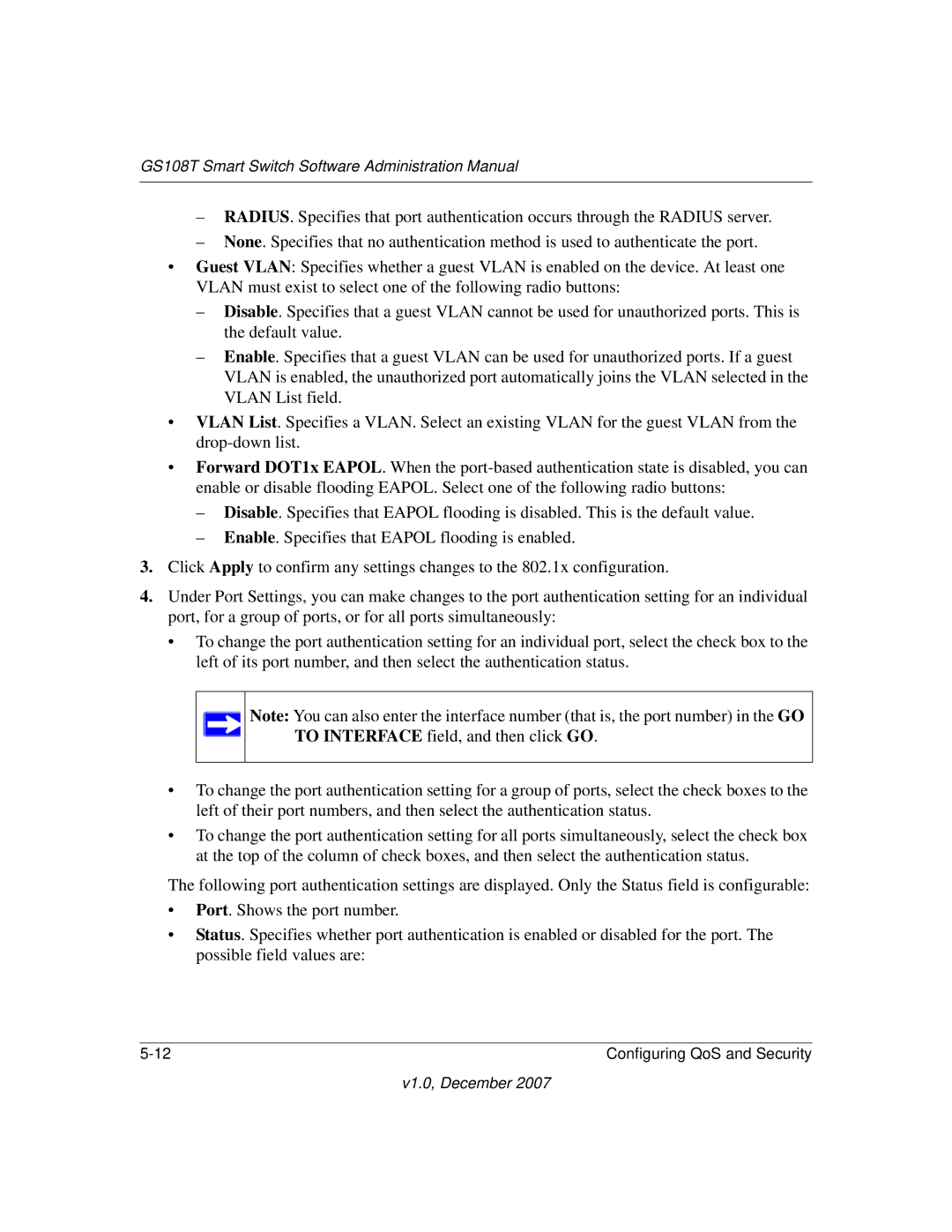
GS108T Smart Switch Software Administration Manual
–RADIUS. Specifies that port authentication occurs through the RADIUS server.
–None. Specifies that no authentication method is used to authenticate the port.
•Guest VLAN: Specifies whether a guest VLAN is enabled on the device. At least one VLAN must exist to select one of the following radio buttons:
–Disable. Specifies that a guest VLAN cannot be used for unauthorized ports. This is the default value.
–Enable. Specifies that a guest VLAN can be used for unauthorized ports. If a guest VLAN is enabled, the unauthorized port automatically joins the VLAN selected in the VLAN List field.
•VLAN List. Specifies a VLAN. Select an existing VLAN for the guest VLAN from the
•Forward DOT1x EAPOL. When the
–Disable. Specifies that EAPOL flooding is disabled. This is the default value.
–Enable. Specifies that EAPOL flooding is enabled.
3.Click Apply to confirm any settings changes to the 802.1x configuration.
4.Under Port Settings, you can make changes to the port authentication setting for an individual port, for a group of ports, or for all ports simultaneously:
•To change the port authentication setting for an individual port, select the check box to the left of its port number, and then select the authentication status.
Note: You can also enter the interface number (that is, the port number) in the GO TO INTERFACE field, and then click GO.
•To change the port authentication setting for a group of ports, select the check boxes to the left of their port numbers, and then select the authentication status.
•To change the port authentication setting for all ports simultaneously, select the check box at the top of the column of check boxes, and then select the authentication status.
The following port authentication settings are displayed. Only the Status field is configurable:
•Port. Shows the port number.
•Status. Specifies whether port authentication is enabled or disabled for the port. The possible field values are:
Configuring QoS and Security |
